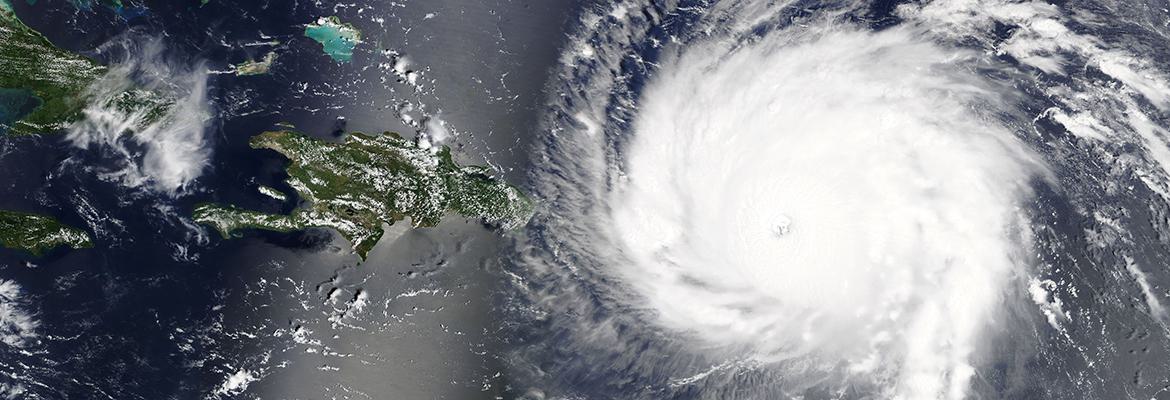As published in Disaster Recovery Journal, JUNE 18, 2020
By: Bill Roche - Senior Project Manager, Witt O'Brien's
The COVID-19 pandemic has put a spotlight on State and Local government hurricane response plans that traditionally use congregate sheltering for displaced residents. Updating emergency plans today to account for COVID-19 considerations will not only help protect communities but will also likely speed post-event recovery.
************************************************************************
COVID-19 adds layers of complexity to the start of this year’s hurricane season. Hurricanes force residents to gather densely in shelters during evacuations which counter the regulations set forth to help minimize the spread of COVID-19. The truth is that in addition to hurricanes there are other large-scale emergencies that occur frequently across America, including tornados, floods, fires and earthquakes.
Preparing for such emergencies while protecting the well-being of your residents during a pandemic takes careful planning, re-imagined communications strategies and additional unanticipated funding impacts. For example, workforce shortages, delays in supplies and materials, funding shortfalls or insufficient hospital capacity may certainly impact an emergency response. However, these considerations must be incorporated into State, Local, Tribal & Territorial emergency preparedness and response plans.
FEMA has outlinedoperational guidelines that State, Local, Tribal & Territorial officials must take into account and emphasizes that all Emergency Managers should adapt their current response plans to mitigate potential for acute community transmissions as a result of the protective measures taken in advance of or during an emergency event.
Below we summarize several COVID-19 specific considerations for Emergency Managers to contemplate as they plan for the next potential disaster:
- Non-Congregate Sheltering: FEMA is enforcing new policies to allow State, Local, Tribal & Territorial governments to execute non-congregate sheltering for purposes of COVID-19 isolation or quarantine. Emergency Managers must plan ahead and have options available to immediately implement non-congregate sheltering once disaster strikes, such as availability of hotels/motels or dormitory rooms. In addition, a plan should be in place for transitioning from short-term non-congregate sheltering to long-term options once the immediate threat has been reduced.
- Emergency Operation Center Digital, Technology Support: COVID-19 will limit the in-person disaster recovery operations to a virtual scenario. Tabletop reviews, inspections and response assistance will take place on-line. Emergency Managers and their teams must ensure they have the ability and resources to adhere to this new approach, including enhancing technology or acquiring video equipment to record inspections for virtual tabletops.
- Individual Assistance (IA): FEMA’s housing inspectors assist eligible survivors with any disaster-related home damage via their IA program. This process, which normally takes place in-person, will be replaced with a virtual streamlined process as practical. Emergency Managers should ensure that the capability is in place to conduct these virtual inspections. It’s equally important that IA programs are detailed and fully staffed in advance of a disaster. There will be no time for delay and repairs must commence immediately for those homeowners who have no option but to return home, most importantly because of the continued social distancing mandates.
- Scaling Staff to Combat Limited Federal Personnel: Across the board, FEMA is minimizing the number of personnel deploying to disaster-impacted areas, as well as the number of new field deployments by utilizing personnel who are already deployed to the impacted region for new response efforts. FEMA also plans to increase reliance on personnel already working at Emergency Operations Centers by deploying locally available personnel and leveraging their remote disaster support. Emergency Managers should ensure they have adequate local personnel to account for changes in federal response staffing footprints. This may require augmentation of mutual aid agreements, hiring new staff or augmenting on-call staff to prepare for such a response effort.
As a result of COVID-19 and the unique nature of the event, it is critical for State and Local governments to review and update their plans to not only protect their communities but to also document why actions or activities taken in response to a new disaster event are prudent emergency protective measures under Category B of FEMA’s Public Assistance program. Even if updated emergency response plans are used for the interim – as opposed to formally adopted – future reimbursement is less likely to be challenged when actions are clearly justified and documented.
It may go without saying that Emergency Managers are well-versed on post-disaster response efforts, however many of these tried and true protocols can’t be enforced during the COVID-19 pandemic. It’s imperative to think ahead, and local governments must develop a plan to communicate regularly to keep others informed and updated. When conditions become overwhelming, consider using consulting experts during this unprecedented time – in fact consultants’ costs are covered under direct administrative cost allowance up to 5% of aggregate total of the Applicants grants.
Keep an open mind and ask for help as often as needed. Don’t think twice about reaching out to your local counterparts and experts. At the end of the day, we are all in this together and it will take all of us to get through this safely.
Please contact us at covidhelp@wittobriens.com for further information or to talk to an expert
************************************************************************

As is with every disaster recovery expert at Witt O’Brien’s, Bill has deep rooted experience as an emergency manager, leading programs and projects alike in various disaster planning, response and recovery operations. He draws on his experience working with FEMA and the Department of Homeland Security when facing a disaster.
Bill has held key executive leadership roles, focusing on change management, team building, budgetary preparation and reporting, strategic management planning, and the implementation of federal grants on disaster response and recovery operations.
Experienced in both the public and private sector, Bill is an integral part of Witt O’Brien’s growth and strategy.
